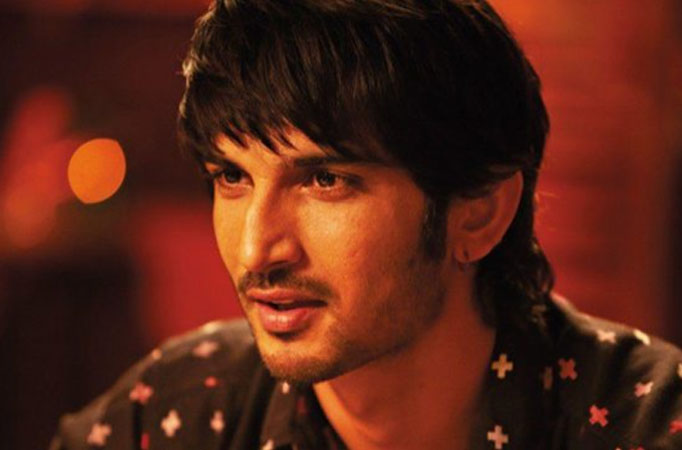
MUMBAI: Beyond the outpouring of grief over Bollywood actor Sushant Singh Rajput’s death, there is searing anger. There is a desire to know why a young, successful star decided to kill himself. And in many a mind, the finger points towards the film industry’s callous ways that led to first, his depression and ultimately, his death.
The old Bollywood nepotism conspiracy theory, too, has reared its head. In this case, though, it is not entirely imagined. Producer-director Karan Johar — someone who had professional ties with Sushant, and had previously borne the brunt of the nepotism charges — has once again become the face of villainy.
Johar’s casting choices have created the impression that he certainly is the most eminent of the upholders of this strange diabolical phenomenon of filmi-nepotism. To some extent that is understandable, given that a big part of Johar’s fame and fortune has emerged from his ability to spin the charmed circle of friends to his advantage. However, it would be unfair to single him out because he is but a mere representative, albeit an important one, of the Hindi film industry.
It has long been an open secret that the film industry establishment prefers to promote its own progeny, and their friends and family. One could rightly argue that it is a free country and a producer or director has every right to choose the talent they would like to work with. However, what one could certainly argue against is creating camps or cartels that do not allow enough fair opportunities for the meritorious.
The ‘insider’ story
The present-day Bollywood or the Hindi film industry is still largely controlled by a handful of families that emerged out of three essential sets of people — those who came into the industry from Punjab in the 1940s and 1950s; the actors, directors, and writers who broke in during the 1970s and 1980s; and their progeny thereafter. Understandably then, Bollywood, for the longest time, has remained a mom-and-pop shop, relying heavily on personal friendships. So the roots of these archaic practices of bhai-chara and nepotism and affiliated biases run deep.
When Bollywood acquired ‘industry’ status in May 1998 and the corporate studios got into the act, there was a belief that things would change. Unfortunately, the scenario remains largely unaltered. There continues to be a discrimination between the two types of film aspirants — young actors and directors from the Bandra-Juhu-filmi-kid circuit and those who come to Mumbai from other cities. The difference is that the former will be given numerous chances, while the outsiders have to succeed with their early projects, otherwise even the few doors open to them start slamming hard on their faces.
Most of those bred within the industry are well groomed in the code of excessive deference, of acquiescence, and double-talk, which serves them well until they reach the critical mass of stardom. They are also tutored well on establishing and cementing their position as stars, even before they actually become one. Outsiders are allowed into the hallowed circles only if they achieve the success that directly benefits the trade. Those outsiders who achieve some amount of celebrity status and success are given a little pat on the back but not the real perks such as the fraternity support for their professional endeavours. Indeed, the best opportunities are still reserved for the insiders until they prove to be total duds. Even then, they are still able to leverage the starry aura created around them. While on the other side, outside entrants, when unable to break through the impenetrable walls of the elite club, have fewer plum projects coming their way, and ultimately feel left out and vulnerable.
No fault in the ‘star’
Since the early 2000s, as Hollywood studios began expanding their presence in India, the clout of eminent family-driven production houses has only increased. Even the streaming giants, the new entrants in the entertainment ecosystem, rely heavily on a limited few of the Bollywood Biggies for sourcing a significant chunk of their programming, making these individuals highly powerful in their exalted status as gatekeepers who can nix a project by putting in a bad word against someone while pushing their own favourites. As a result, personal and professional biases from Bollywood have spilled over into this new OTT entertainment industry too.
Unfortunately, in the eyes of the studio heads, there is still nobody bigger than the ‘star’, who is often seen as a failsafe to generate big business revenues. With a star actor, director, or producer in the mix, biases or prejudices are never questioned, their recommendations and put-downs diligently pencilled in. This practice adds yet another level of difficulty to the outsider’s obstacle race to achieve stardom and a successful career.
Quite similar to what we have seen with the MeToo Movement, a lot of exploitative and unacceptable practices were ignored or overlooked simply because it was the privilege of the privileged. Until the lid was blown off and the horror stories tumbled out.
Nepotism, it is turning out, is no different. It is no longer just harmless ragging or collegiate groupism. What is particularly alarming is the toxic levels that this ‘othering’ has reached. The fact that this toxicity may have contributed even to a small degree to Sushant Singh Rajput’s death is unsettling and calls for some soul-searching by the industry’s top brass.
ALSO READ – (Actress Amrita Rao forgoes rent of her tenants due to lockdown)
The dream of ‘outsiders’
Actress Kangana Ranaut, in an interview with me last year before the release of her film Judgementall Hai Kya, said that all the praise and appreciation, it seems, did not go beyond paying lip service. There was no actual support during the release of a film by way of friendly endorsements. Several young actresses, including Taapsee Pannu, in their interviews with me, have mentioned being signed and then unceremoniously dropped from projects in favour of Bollywood ‘insiders’. And because most of them do not have anyone to advise them on navigating the minefields that the route to fame and fortune is riddled with, it heightens their feeling of vulnerability.
A talented young actor, in all the outbursts that follow film award seasons, once told me, to my shock, that omissions or oversights in even the category they are nominated in — main actor or supporting actor — could literally be a matter of life or death for new young actors trying to make it on their own.
In one of the few interviews that I did with Sushant, he made an interesting point: after fulfilling the first round of ambitions — a house to live in, a fancy car, a certain lifestyle — he wanted to create a new set of ambitions. His point was that after a successful stint in television, he had achieved his materialistic ambitions. He now wanted to do better work, hone himself as an artiste, and strive for recognition for his work beyond just the film industry.
For all the bright-eyed new talent on the firmament, this could be an eye-opener when chasing one’s ambitions. As per Maslow’s theory on the hierarchy of needs, self-actualisation and esteem are the two highest after the physiological requirements are taken care of. And that self-actualisation, if based on the fickle attention of others — be it the validation from the Bollywood ‘blue blood’ club, studios, talent management, media, or acolytes— can be dealt a death blow when the attention shifts to others.
All those who have succeeded and failed and survived to tell their tales, have one thing in common — they keep a small group of trusted family members, or ever-reliable and truly well-meaning people, very close to them. They also explore newer avenues for work. Priyanka Chopra, now a Hollywood celebrity, is a good example. At a time when she was not getting any big-banner films in India, she charted out an international career with the emotional support of her parents, especially her mother Dr Madhu Chopra. Or Kangana Ranaut, who has established channels of work even outside the Hindi film industry.
For a less-toxic Bollywood
Truth is a strange thing because it can vary depending on the seeker and the purveyor. So it is with Sushant’s untimely and tragic death. There are different truths about what brought matters to a head for the actor. But, it would not be wrong to say that he was a victim of the culture of high-speed celebrity where the first flush of success must be followed by adding multiple layers to one’s brand – endorsing products, running a business, owning a sports team, etc.
Unfortunately today, young actors with just a few films under their belts are egged on by their agents and managers to pitch themselves as brands. Newbies want to build themselves into superhuman entities who can wear many hats, almost overnight. But big brands take time and consistency and concentric rounds of success and failure to form. To try and accelerate all of it to gain instant celebrityhood that will also last forever, as promised by talent agents, can be catastrophic. A lot many youngsters begin to chase this ephemeral dream and before they know it, they burn and crash.
When it comes to the issue of mental health, I would prefer to leave the comments to qualified professionals, but suffice it to say that depression and suchlike ailments are linked to the events in one’s life and cannot be viewed in isolation.
Sushant Singh Rajput was a quintessential outsider trying to march to the beat of his own drum. Unfortunately, he encountered myriad complications peculiar to being a film industry outsider, which quite likely exacerbated his depression. Unfortunately, a bright shining talent is gone, already a distant memory in the galaxy. Hopefully, his last act of rebellion will pave the way to opening up the debate for a better, safer and less-toxic Bollywood for many other hopefuls who will arrive, hoping and waiting for a chance to shine.
SOURCE – THE PRINT
ALSO READ – (Actress Amrita Rao forgoes rent of her tenants due to lockdown)

















Add new comment